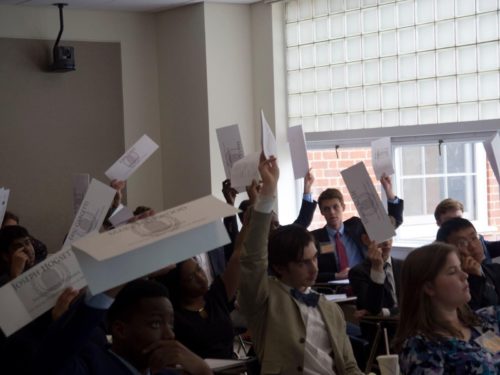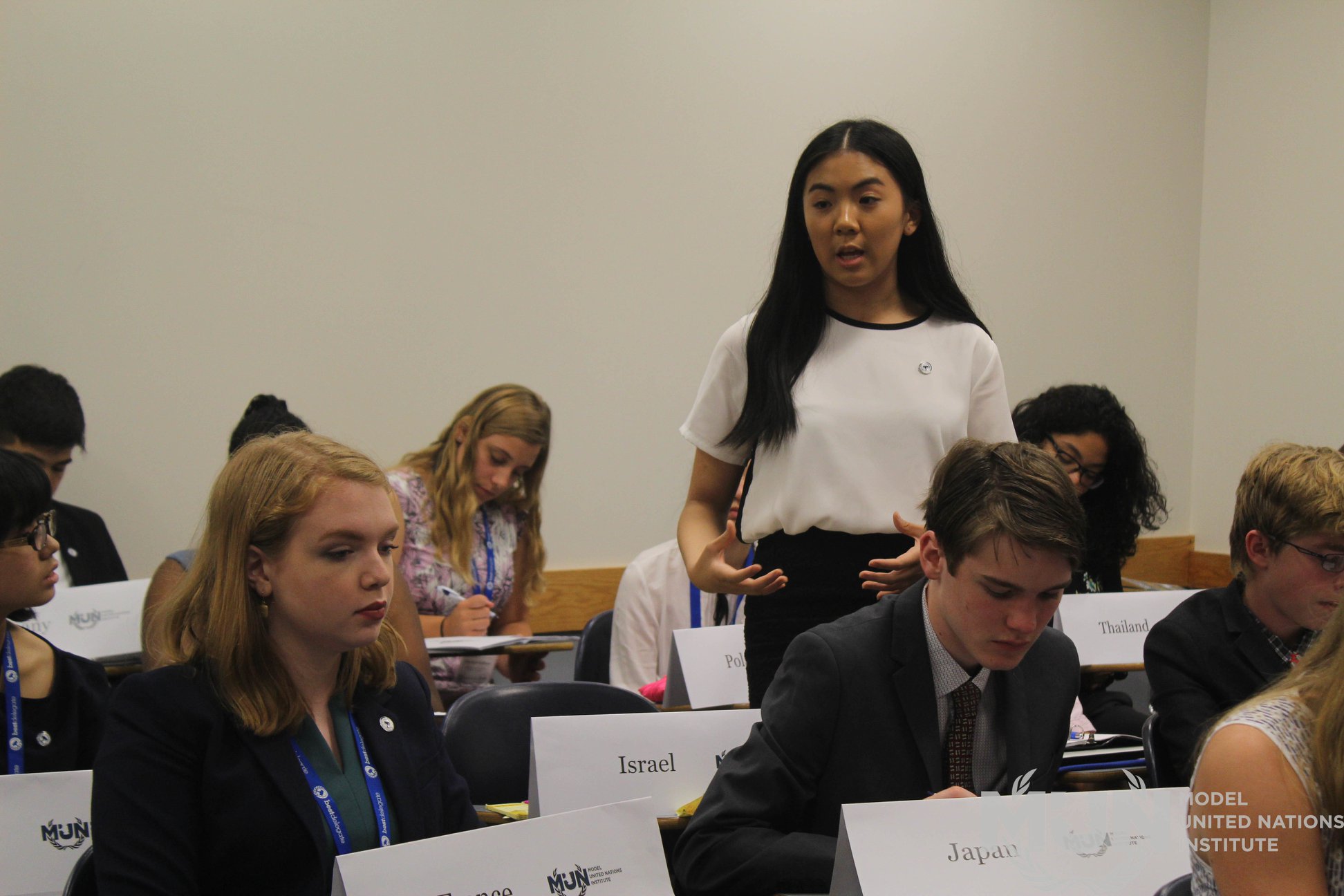
Whether you’re brand new to Model UN or a seasoned veteran, public speaking can be one of the most daunting elements of committee. Although crisis committees give delegates the chance to separate themselves in the backroom, in-room performance is still critical to the success of a delegate. The biggest hurdle to becoming a better speaker in committee is having the confidence to raise your placard. Developing confidence is a difficult process and one that cannot happen overnight. The best way to make yourself more comfortable speaking in committee and public speaking in general is to consistently practice, best done with the help of others. These are some great ways to practice public speaking to build that confidence before entering committee.
Activity #1: Political Gaffes
Responding to political gaffes is the perfect activity for the crisis delegate that is always finding themselves on trial in committee. Have one person read a scenario that has gotten a political figure into trouble or caused a scandal during their tenure. The speaker is given 45 seconds to formulate a defense to the claim, explain themselves, or spin the situation in an entirely different direction to exonerate themselves from the situation. This often leads to some very creative ideas that can be very entertaining to see. By being told the situation only seconds prior, this exercise forces delegates to think on their feet and jump into the shoes of the figure instantaneously, situations that frequently occur in crisis committees.
Activity #2: This or That
Commonly used as an icebreaker-type game, ‘This or That’ is an activity in which players are asked to defend their side when asked a question with two options. This results in a productive way to practice public speaking. Give each side a chance to debate the two options and see if anybody was successful in winning over the other participants. This allows delegates to practice debating specifically to convince other delegates to support their ideas, an essential skill in any MUN committee.
A variation of this game is to assign a delegate to each side of the argument and making them argue their position. One of the most difficult challenges in a committee is being forced to argue a side that you personally disagree with, and this exercise can replicate this challenge with lower stakes. By not allowing delegates to pick a side, they may be forced to look at a simple question from a different perspective, a valuable skill to have when considering how to present ideas in a committee. While it adds another layer of difficulty, this is sure to help delegates learn how to argue a difficult position.

Activity #3: Defend your Favorite Movie, TV Show, Album, etc.
This is the simplest of these activities but can help for beginners practicing learning how to operate within a speaking time. Simply ask delegates to argue why their favorite movie, show or album (could really be anything) is their favorite, giving them a 30 or 45 second speaking time. For new MUN delegates, one difficult element of debate could be filling up the entirety of their speaking time or making sure to emphasize all of their points within the allotted time. This activity is a great way for beginners to learn how to use a speaking time before putting it into practice in committee.
Activity #4: Mock Committee Debates
This activity is especially helpful when preparing for a certain topic or question to be brought up during a committee. Delegates can be given a topic and a side to argue on a topic pertinent to a particular committee or that could be encountered in many situations (nuclear proliferation or economic development, for example). Give delegates a speaking time and allow them to debate as they would within a short moderated caucus or the speaker’s list. Encouraging a natural progression of the conversation as it would occur in a real committee can help to simulate the debate beforehand, giving delegates a chance to see what it may look like during the real committee. This would be particularly helpful in easing the nerves of newer delegates.
These are just four activities that can be used to practice public speaking, but there are countless others that can provide the same benefit. A common misconception with preparing for MUN debate is that the practice needs to be on a formal topic. Any activity that requires participants to think on their feet or convince people to take their side is beneficial in developing the skills to become an effective speaker. Half the battle to becoming a standout debater is developing the confidence to raise your placard and introduce new ideas or proudly argue a side. The best way to develop confidence is with consistent practice, and games like these are a great way to have fun doing it!


